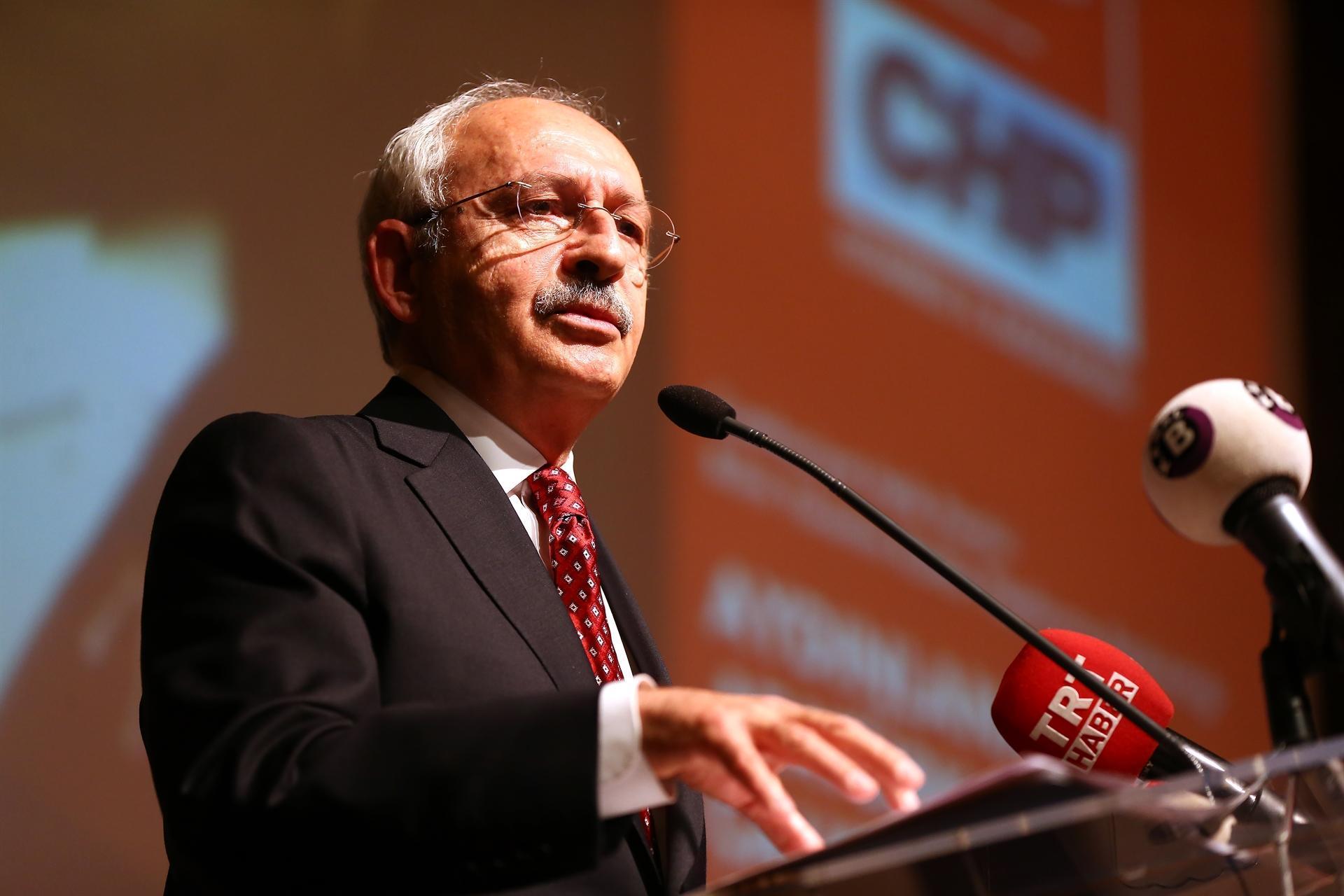CHP leader cites seven problems in Middle East
ISTANBUL

The main opposition Republican People’s Party (CHP) introduced seven problem areas and related solutions for the current unrest in the Middle Eastern countries, defining the basic problem as a lack of education, adding that the diversification of economic sources of income and changes in the social structure into a more “competitive and productive” manner could make way for a solution.
“In order to bring peace and tranquility to the region, these seven basic problems should be tackled as the main focus in the long or short term. If the countries in the region can come together and make common wisdom prevail, then they can bring the region peace, prosperity and security,” Kılıçdaroğlu said on Dec. 15, speaking at a conference in Istanbul titled “Middle East: Searching for possibilities for peace and living together.”
“Baghdad’s, Damascus’, Beirut’s and Tripoli’s problems have become the problems of the world. Today, the historical centers of the Middle East have become the playground of autocratic leaders, terror, petroleum barons and dirty politicians,” said Kılıçdaroğlu, speaking on the current unrest in the region.
Defining seven problem areas in the region, Kılıçdaroğlu introduced possible solutions for each.
“The first basic problem is the lack of education of the people of the region. According to research, the average education period for people older than 25 in Muslim countries is 5.6 years. This period is 14 years in New Zealand, 13.6 years in the U.S. and 13.5 years in Canada,” he said.
Kılıçdaroğlu added that Islam has been “made into an instrument for terror and radicalism,” saying that “in order to stop this, close coordination between Islamic countries plays an important role.”
“Countries in the region should cooperate on political, military and security issues apart from economic and social cooperation,” he added.
“We have to make women and youth more active,” said Kılıçdaroğlu, underlining that women and youth have experienced problems participating in political, social and economic life.
Another problem he pointed out was the practice of politics “on a sectarian and ethnic fault line,” as he suggested providing freedom of thought, belief and worship to a full extent.”
“In this context, an important assurance for the public will be for states to achieve a secular structure,” Kılıçdaroğlu said.
“Society’s will for change has not been acknowledged as a legitimate demand and domestic dynamics have been blocked. This understanding has paved the way for external intervention and authoritarian rules,” he said.
“But in the 21st-century, societies crave democracy and freedom,” Kılıçdaroğlu said.
He also highlighted the economic structure of the region, stating that economies in the region predominantly depend on petroleum or natural gas, adding that these states “should diversify their sources of income.”
“The success of this diversification will weaken the power of sovereign powers in the region. For this, economic models based on production in different fields should be established. These models should be developed within a regional framework,” Kılıçdaroğlu said.
“Economic integration will safeguard peace in the region,” he said.
The social structure should be transformed into a “competitive and productive social structure,” said Kılıçdaroğlu, adding that “lack of this structure brings unrest to society.”
















